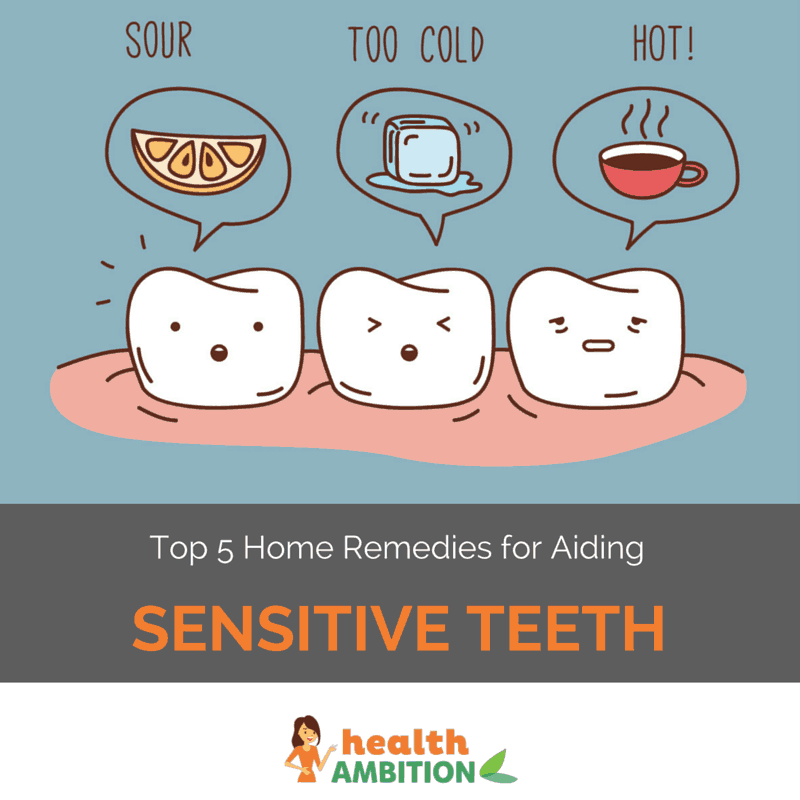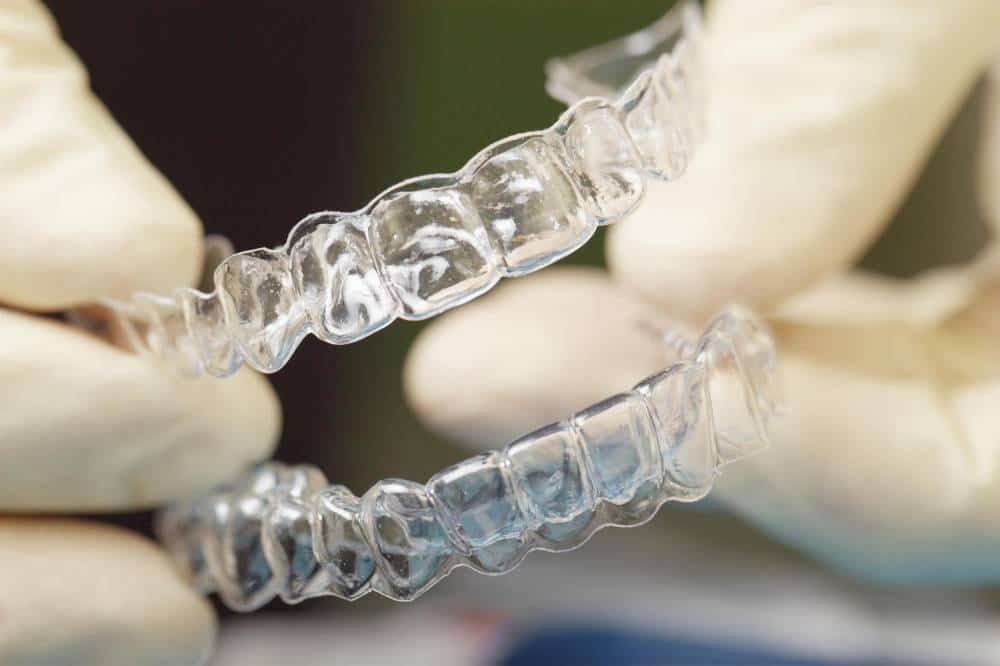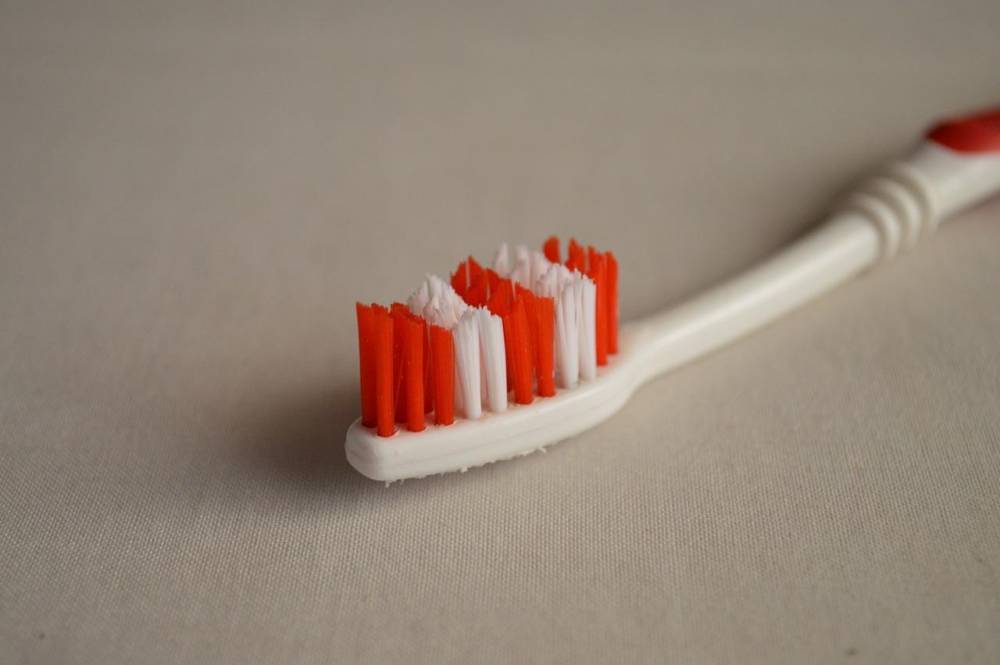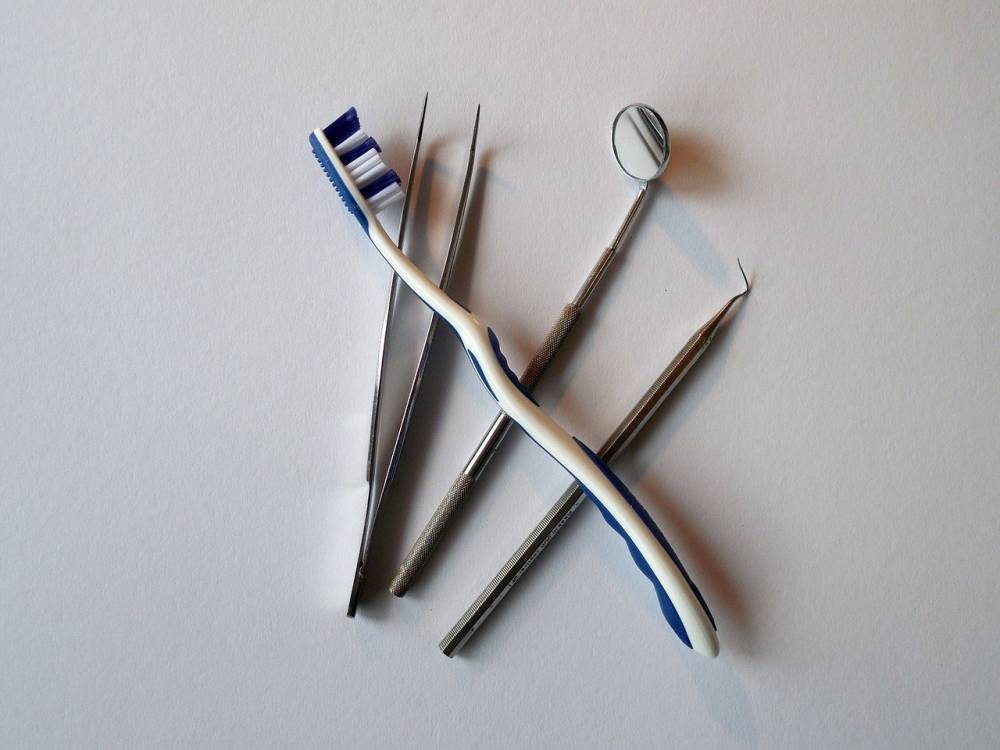
Do you ever find yourself wincing when you take a bite of cold ice cream or a sip of hot tea in the morning? If you’ve experienced this, you aren’t alone – you may be suffering from sensitive teeth.
Sensitive teeth can really be a pain to say the least. While it isn’t a life-threatening issue by any means, it’s quite an annoyance. I have a friend who complains about her sensitive teeth every time we meet for lunch. After listening to her for so long, I began to wonder, are there ways to cure sensitive teeth? There must be an underlying issue or a way to treat the condition, right?
So I went ahead and spoke to my dentist. I also did some research of my own. Luckily I discovered several ways to help alleviate your sensitive teeth right in your own home. As always, I was happy to uncover some all-natural ideas as well. While an appointment with your dentist is the absolute best option for solving any teeth issues, there are some things you can try on your own too.
If this is the first time you’re experiencing sensitive teeth you may be wondering what has caused this condition to suddenly develop. So let’s start there.
What are the Causes of Sensitive Teeth?
Your teeth can become sensitive for a variety of reasons. Mouth Healthy and Colgate toothpaste mention several causes for new onset of tooth sensitivity. These include:
- Cavities or tooth decay
- Fractured teeth
- Worn fillings or tooth enamel
- Having a tooth root exposed
- Gum disease
- Tooth erosion from highly acidic foods and drinks
- Tooth erosion due to bulimia or GERD (gastroesophageal reflux disease)
- Gum recession that leaves the root of your tooth exposed
Mouth Healthy explains that in normal, healthy teeth, the enamel layer protects your teeth above the gum line. The parts of your teeth that live under your gum line (the root) are protected by a layer called cementum. Underneath both of these protective layers is a substance called dentin.
Dentin’s structure consists of extremely tiny, tube-like, hollow canals. When your protective enamel or cementum layers break down, the tubes in dentin allow hot, cold, acidic and sticky foods to reach the nerves inside your teeth. This of course causes hypersensitivity to hot and cold food and drink.
Dentist Brian Halvorsen explains in the following YouTube video that younger people are suffering from sensitive teeth more frequently nowadays. This is mainly due to the over consumption of fizzy drinks, including sparkling water! Check out his video to see what component of these beverages is causing sensitive teeth.
How to Cure Sensitive Teeth
The good news is that treatment of sensitive teeth is often very easy. The approach depends on what is causing the sensitivity in the first place. Speaking with your dentist will help you pin down the root of your problem. If you believe that your sensitivity might be due to tooth decay, infection or disease, you should definitely speak with your dentist to sort out the problem immediately.
If you think it might simply be an enamel barrier breakdown, you can try some home-based remedies for relief from your sensitivity right away.
First off, I want to tell you about my favourite all-natural remedies for curing sensitive teeth. If you’ve been following my blog for a while, you’ll know I love all-natural approaches to anything that ails me. As you can imagine I was super excited to find all-natural solutions to sensitive teeth as well!
5 Home Remedies for Sensitive Teeth
1. Try a Different Toothbrush
A toothbrush is a mandatory item in this day and age. You run the risk of serious dental issues if you neglect regular brushing. Not all toothbrushes are created equal. The type of toothbrush you choose is very important too.

I used to always opt for a hard-bristled brush because I felt like it did a better job. I later found out that it was doing too much. A hard-bristled toothbrush can actually be very abrasive on the layers of your teeth and increase the risk of developing sensitivity.
Colgate tells us that picking a softer brush and learning to brush gently instead of ferociously like I had been doing, can actually go a long way to helping with teeth sensitivity.
Next time you need to grab a new toothbrush, reach for a softer model. Consciously brush your teeth gently instead of the way you’d scrub a dirty floor.
2. Avoid Highly Acidic Foods
Foods and drinks that are high in acid can really wreak havoc on your teeth. Culprits with highly acidic properties include coffee, citrus fruits like lemon and lime, wine, carbonated beverages and even yogurt.
If you just can’t keep yourself away from these foods, consider using a straw to drink them to lessen the contact your teeth have with the acid. The Mayo Clinic even suggests drinking milk or water after consuming an acidic substance. This will help balance out the increased acid levels in your mouth.
Somewhat counterintuitively, the Mayo Clinic also tells us that you should avoid brushing your teeth immediately after consuming acidic foods as this can soften your enamel and “makes it more vulnerable to erosion during brushing.”
3. Wear a Mouth Guard
Do you grind your teeth at night? I have done this my whole life, especially during times of high stress, and I just can’t seem to kick the habit. Grinding your teeth can wear down your tooth enamel and leave you feeling sore, sensitive and tense the next morning.

Asking your dentist for a mouth guard can help reduce your propensity for grinding. This protective layer between your aggressive teeth will help decrease the amount of enamel you are damaging by grinding.
Your dentist can provide a guard that will fit the unique shape of your teeth best. However, if you don’t want to pay a visit to your dentist you can find mouth guards at your local pharmacy, or Amazon.
4. Analyse Your Brushing Technique
Did you know there’s a right and wrong way to brush your teeth? Like most of us, I didn’t know it mattered that much until I did some research. According to Women’s Health Magazine, brushing with a back-and-forth motion is considered the wrong way. This style of brushing can cause your gums to recede.
According to this article, the right ways to brush is to hold your toothbrush at a 45-degree angle to your teeth and then begin brushing in a circular motion. Take special care that you aren’t pushing too hard which can expose sensitive spots. Their tip for making sure you aren’t brushing too hard?

Take a look in the mirror while you brush and make sure the bristles aren’t smashed against your teeth and shooting out in all different directions. If that’s what you’re seeing, ease up.
5. Don’t Overuse Bleaching Products
Women’s Health Magazine also tells us that “at-home whitening treatments can contain abrasive ingredients that increase tooth sensitivity and cause pain – especially when used too often.” You can eliminate this increased tooth sensitivity by cutting down on bleaching. Limit it to once every six months or so.
If you’re just beginning to experiment with solving your sensitivity issues and haven’t cracked the code just yet, you can lessen your pain and irritability right now by making a few small changes. Some simple ideas include brushing your teeth with warm water instead of cold, drinking through a straw or avoiding extremely cold or hot beverages.
Advanced Remedies for Sensitive Teeth
Sometimes the tactics above just aren’t enough for more serious cases of tooth sensitivity. If the home remedies above haven’t provided any relief from your sensitive teeth, you should consult with your dentist and inquire about other options such as:
- Desensitizing toothpaste
- Fluoride gel treatments
- Crown, inlay or bonding
- Surgical gum graft
- Root canal
One of the first treatments your physician may suggest is to use desensitizing toothpaste. You can find this type of toothpaste at your local convenience or grocery store as well as on Amazon. Always be sure that any toothpaste you choose has a seal of acceptance from the American Dental Association to ensure its safety and efficacy.
According to the American Dental Association, desensitizing toothpaste “contains compounds that help block sensation traveling from the tooth surface to the nerve.” You won’t feel immediate effects, but over time your sensitivity should be reduced.
If you don’t notice an improvement, your physician may ask you to come in for an in-office treatment with fluoride gel. This is a technique which can help strengthen your tooth enamel and reduce the sensations transmitted from food and drink to teeth.
Fluoride gel treatments are a great non-invasive option which can be carried out at your dentist’s office. According to this article, fluoride is a “varnish” that is applied directly to the tooth. The good news is that this treatment has been approved by the Food and Drug Administration as an effective treatment for sensitive teeth. It’s also sometimes used as a cavity liner.
A surgical gum graft is used when the root of your tooth has become exposed, usually due to gum recession. It not only looks unsightly but causes tooth sensitivity too. A gum graft can be used to inhibit further recession of your gums.

A root canal is another treatment that may help with sensitive teeth. According to Crest, a root canal is “a multi-step dental procedure that involves removing the infected tooth pulp (and sometimes the nerve) from a tooth, and sealing it to protect against future teeth pain.”
Having sensitive teeth can be a sign that you need a root canal. If you are concerned about this, make an appointment with your dentist as soon as possible. In this article, Crest Toothpaste shares some signs that you may need a root canal:
- Pain in your teeth when eating or putting pressure on area
- Sensitivity to hot or cold items that lingers after the item is removed
- Darkened teeth
- Bumps or tenderness on the gums near the area of your pain
If you are experiencing any of these symptoms, I recommend calling your dentist right away. The sooner you get to the root of the problem, the sooner your teeth will be pain free. You will also avoid more severe consequences down the road.
The Last Word
Now that we’ve fully investigated how to cure sensitive teeth, what’s your plan of action? As mentioned throughout this article, it’s important to have your dentist identify the underlying cause in your particular case. If you suspect any sign of infection, tooth decay or gum disease, make sure you notify a healthcare professional right away.
Otherwise, you can try some of these home-based remedies for how to cure sensitive teeth:
- Try a soft-bristled toothbrush
- Brush your teeth more gently and in a circular motion
- Avoid highly acidic foods and drinks such as carbonated beverages, coffee, wine and citrus fruits
- Wear a mouth guard at night to prevent grinding away your enamel
- Limit usage of bleaching products to once every six months
If these remedies don’t bring you satisfaction or relief, speak with your doctor about the more advanced treatment options available, including:
- Desensitizing toothpaste
- Fluoride gel treatments
- Crown, inlay or bonding
- Surgical gum graft
- Root canal
The great news is that while sensitive teeth can be annoying and in some cases are a symptom of a more serious underlying issue, there are plenty of natural and medicinal ways to treat your problem.
Do you have story to share about sensitive teeth and how you fixed them? Please share your experience in the comments below!
Sources: 1, 2, 3, 4, 5, 6, 7, 8, 9
Leave a comment